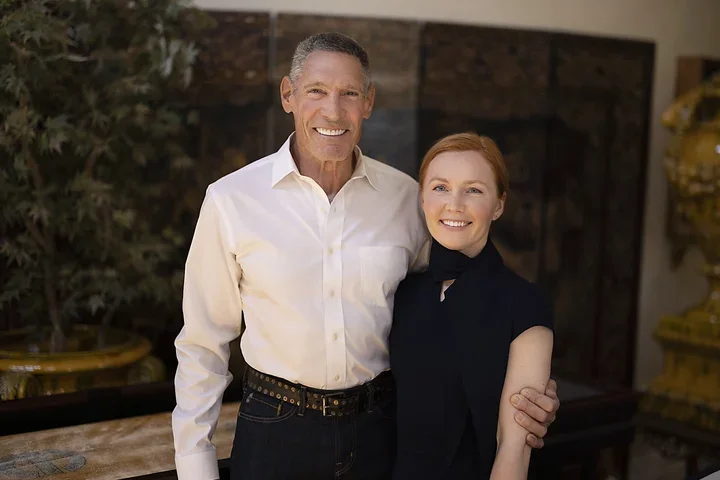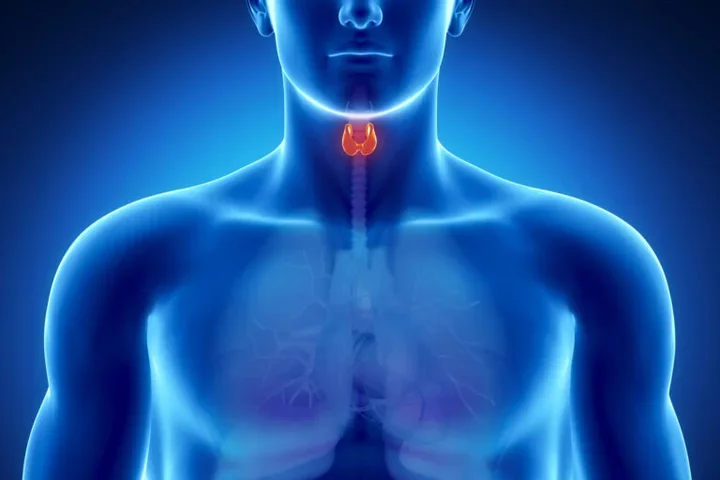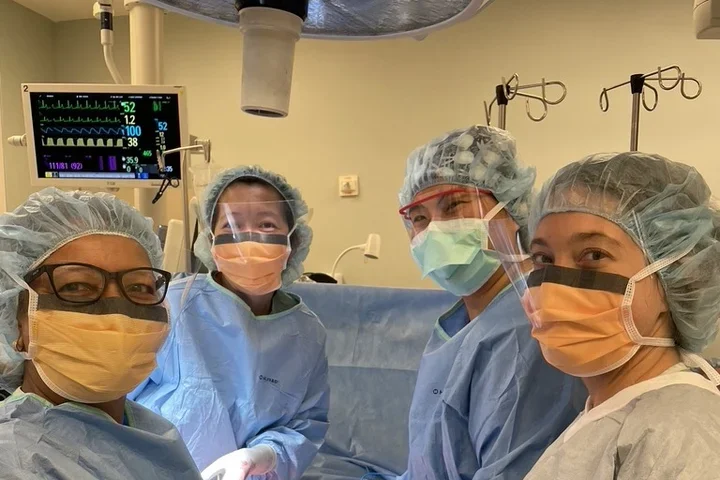Medical School Graduation and the Hippocratic Oath

Celebrating Diversity and Unity at the DGSOM Hippocratic Oath Ceremony
Medical students have several emotionally charged landmarks in their academic careers in addition to their medical school graduation: from the white coat ceremony, to the start of their third year of clinical rotations, to Match Day when they find out where the next step in their careers will take them.
These milestones all lead to the Hippocratic Oath ceremony, which varies at every institution. The joy felt by medical students at the David Geffen School of Medicine at UCLA is always palpable as they prepare to take the oath. Christine Thang, MD, recent graduate of DGSOM, reflected on making this momentous promise, which is designed to guide her career as a physician.
Taking the Oath
DGSOM hosts a graduation ceremony that includes its Hippocratic Oath, which as recited by its newly hooded students, varies from the original oath to fit medicine's current practicality. "Reciting the oath together as a class really solidifies all the four years of teaching we've received at medical school," reflects Dr. Thang. "That time together really helps to remind us that as we leave graduation, our job is to treat not just the diseases we encounter but to think of each individual patient as a whole person. We are unified in this oath."
Then and Now
Although the original Hippocratic Oath included mention of never using "the knife" on patients (a practice that would now describe contemporary surgery), the words of the current DGSOM Hippocratic Oath are more relevant to modern medicine's standards of care. Nevertheless, the basic principles of working for the good of the community still saturate the oath, as students promise: "To the best of my ability and judgment, I will practice the art only for the benefit of my patients. Whatever house I may visit, I will enter only to help the sick or to prevent illness, never to inflict harm, injustice or suffering."
(Related Article: Modern Hippocratic Oath Holds the Underlying Values of Medicine in a Digital World)
Preparing for the Ceremony
Unlike some schools where students may feel somewhat removed from the planning of their medical school graduation ceremony, Dr. Thang reports that students in the David Geffen School of Medicine at UCLA are invited to become intimately involved in the process leading up to their special day. "As a class, we're given the opportunity to submit ideas for a main keynote speaker, and this year we selected someone who we felt was influential within our own UCLA community. Students also are invited to submit their own speeches to audition for the role of the student keynote speaker."
'To Cure When Possible, To Care Always'
The DGSOM Hippocratic Oath ceremony concludes by showcasing the diversity reflected in its latest graduating class, as students end their oaths in their first languages. The passage "to cure when possible, to care always" is recited from the podium first in English, then in all of the languages represented in the student body.
This ending creates a powerful reminder of their unity, according to Dr. Thang. "At UCLA, we pride ourselves in being a very diverse community, and this really is seen in our graduation ceremony. It's this powerful time that reminds us of just how diverse our classmates all are, and ultimately it's this experience of being trained through medical school within such a unique student body that helps to contribute to making us better physicians in the long run," she says.



